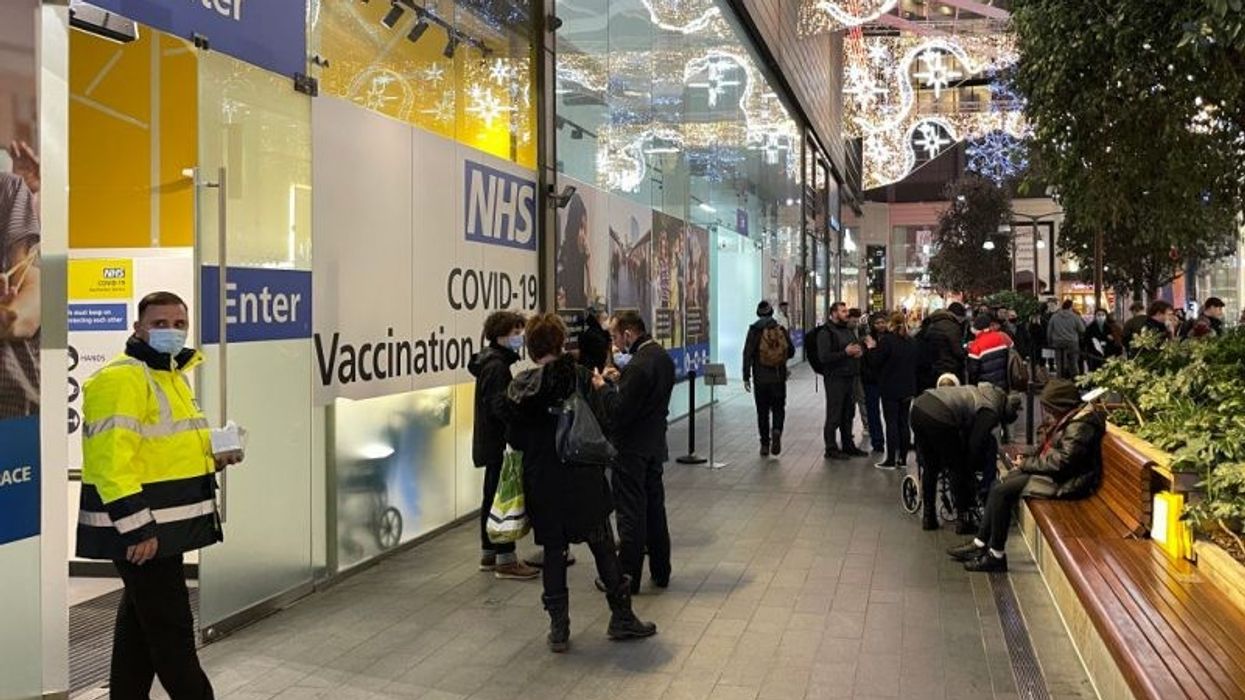THE NHS has told pharmacies that it cannot increase the number of Covid-19 rapid tests it delivers each day, The Telegraph reported.
Infections from the Omicron variant of the coronavirus have risen in the UK with the number of new cases reaching 59,610 on Tuesday (14), the highest figure since early January.
Health leaders were told during an emergency meeting that there would be a temporary pause on the orders of test kits in some regions, the newspaper said.
NHS officials said it was "not possible logistically" to increase supplies to pharmacies beyond what they offer now, the report said.
During the meeting, healthcare bosses asked the government to stop directing people to pharmacies for the tests after prime minister Boris Johnson insisted there were "ample supplies in the shops", the Telegraph reported.
On Monday (13), the British government's website suspended online ordering and home delivery of lateral flow tests, which will be required for some social gatherings.
Omicron cases could reach 1m a day
British government’s most senior public health adviser has warned that Omicron infections could reach 1m a day by the end of December, The Guardian reported.
Dr Susan Hopkins told MPs that the Omicron Covid variant was initially doubling every two to three days in the UK but the pace appeared to have speeded up, driving a surge of disease that risked putting “significant” pressure on the NHS.
The number of Omicron infections across the country is estimated to be far higher – at an estimated 200,000 daily infections– due to a time lag in testing and because many cases are never picked up by the testing programme, the report added.
Hopkins said with so many people expected to contract the virus over the coming weeks, the NHS would come under significant pressure if only a fraction became ill enough to need hospital care.
“If we have a million infections a day, even a very small proportion of those individuals requiring hospitalisation will put a significant impact on healthcare,” she told the Commons science and technology committee.
There are also concerns about the impact on schools, lorry drivers and shop workers if cases continue to rise rapidly while forcing 10 days’ isolation for anyone who contracts Covid.
According to the report, hospitals in England are bracing themselves for a “significant” surge in Covid patients from next week because the Omicron variant is spreading so fast, a senior NHS leader said.
Chris Hopson, the chief executive of NHS Providers, has told the Guardian that Omicron’s greater transmissibility means hospitals would again have to treat large numbers of patients despite it apparently inducing milder symptoms than the previously dominant Delta variant.
On Tuesday, the UK’s four chief medical officers approved a temporary suspension of the 15-minute observation period to help speed up the vaccine rollout.
Patients normally stay at the vaccination centre for a short time after having their shot in case they experience a serious allergic reaction, which happens with about one in 100,000 doses, the newspaper report said.
The observation period will remain in place for people who have previously experienced anaphylaxis or other allergic reactions.





